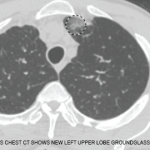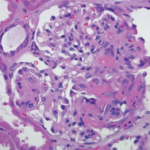 There is an old adage that there are two types of people—lumpers and splitters. For some, people are easily categorized into liberal vs. conservative, Democrat vs. Republican, Donald Trump supporter vs. Hillary Clinton supporter. For others, everyone is a snowflake, and what makes us different is much more important than what makes us the same. So a splitter would look at a room full of Trump supporters and not see a room full of Trump supporters. Instead, a splitter might see a few single-issue voters mingling with anti-NAFTA voters, anti-Clinton voters, anti-establishment voters and a handful of people who are just tired of not being cut a break.
There is an old adage that there are two types of people—lumpers and splitters. For some, people are easily categorized into liberal vs. conservative, Democrat vs. Republican, Donald Trump supporter vs. Hillary Clinton supporter. For others, everyone is a snowflake, and what makes us different is much more important than what makes us the same. So a splitter would look at a room full of Trump supporters and not see a room full of Trump supporters. Instead, a splitter might see a few single-issue voters mingling with anti-NAFTA voters, anti-Clinton voters, anti-establishment voters and a handful of people who are just tired of not being cut a break.
When I was an undergraduate, I—along with every other pre-med on campus—enrolled in Chem 10, the introductory chemistry course, which was taught by Dudley Herschbach. If you were a chemist, you would know that he was a Nobel laureate, having won the Nobel Prize in Chemistry in 1986, along with Yuan T. Lee and John C. Polanyl, for having developed the field of molecular stereodynamics. If you were a freshman, however, you knew Dr. Herschbach as an affable, grandfatherly chemistry professor. He was the professor who let you play your music over the auditorium loudspeaker before class started as a reward for getting up extra early. He also bemusedly tolerated students nodding off, knowing that at that age, an 8 a.m. class may as well have been held at the crack of dawn.
On the day of his last lecture, trying to convince us to join the ranks of chemistry majors, he told us why chemistry was superior to the other sciences. Life, he said, was like an impressionist painting. Physicists stand too close to the painting; all they see are the dots. Biologists are too far away; they can make out the boats and the churches, but cannot see what makes them special and unique. It is the chemists, he said, who have the right perspective and can see the whole picture.
Of course, that is a matter of perspective, as well; some people like the dots, and you can easily picture a professor of physics waxing poetic on their intricacies and charms.
Those of you who have had the misfortune of sitting through one of my talks on vasculitis know that I am a lumper. Severe granulomatosis with polyangiitis should be treated with cyclophosphamide or rituximab. Non-severe granulomatosis with polyangiitis should be treated with methotrexate.


